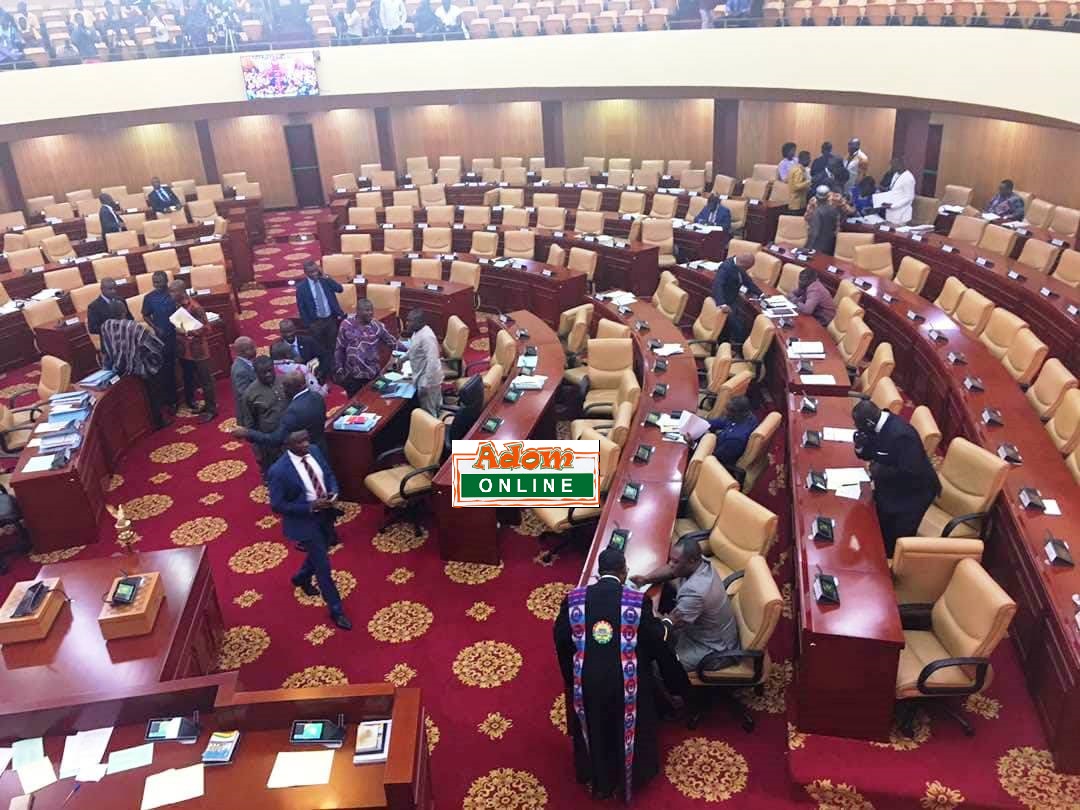
A survey by Odekro has shed light on the poor working conditions and lax structures surrounding the employment of research assistants for parliamentarians in Ghana.
In a survey that covered 26 research assistants for who were randomly selected from the larger pool, Odekro found that 18 of the respondents (69.2%) were dissatisfied with their work whilst only three said they were satisfied with their job.
This sentiment manifested recently complained over the non-payment of their salaries and threatened to demonstrate at Parliament.
In a letter addressed to the Speaker of Parliament, the research assistants claimed had not been paid for the past 11 months.
Odekro held that their conditions of services left a lot to be desired.
“The majority of the responses suggest that RAs are not working under satisfactory, safe and healthy work conditions, contrary to Article 24(1) of the 1992 Constitution.”
ALSO: Photos: Missing SHS student found dead, family suspect murder
For remuneration, 11 of the respondents, representing 42.3%, said they earned a monthly income between GHc600-GHc1,000; eight (30.8%) of the respondents earned between GHc300-GHc500 and two respondents earned upwards of GHc2,000.
Two of the respondents were working on a pro bono basis whilst one respondent earned random allowances.
Though all the research assistants surveyed had been working for their MPs for over three years, 23 of them (88.5%) said they had not signed an employment contract.
Twenty-three of the assistants also said their MPs did not and had never paid their Social Security and National Insurance Trust (SSNIT) contributions.
Odekro’s recommendations
The watchdog urged Parliament to consider putting up a proper structure to recruit Research Assistants for MPs, of which the minimum requirement is a second degree.
Whilst noting that the minimum requirement was stringent, Odekro maintained that it was necessary.
“This baseline requirement might be extreme as there are experienced Research Assistants who might not meet the requirement but have been extremely helpful in enhancing the effectiveness of their MPs and even their electoral fortunes.”
“A standardized job description, employment contract, terms of engagement and working conditions for Research Assistants will also be helpful as pertains in other parliaments across the world.”
ALSO: NDC curses with Antoa over voters’ register
The report also urged Parliament to look beyond academic qualifications in selecting assistants as conventional qualifications “are insufficient to make one fit for and effective in the role.”
“The Parliaments of advanced democracies (such as the UK Parliament) rate work experience and commitment to politics higher than all other considerations including academic qualifications for the job,” Odekro notes.
Other key figures
Twenty-five of the respondents were aged between 25-30 years with the others being between 31-40 years.
Gender-wise, 65.4% of the respondents were men whilst 34.6% were women. 73.1%) respondents had completed either undergraduate or Diploma levels of education; 11.5% were post-graduate/PhD students; one had completed his PhD; one respondent had reached HND level.
Nineteen started working as Research Assistants to MPs through national service; 2 (7.7%) through political party referrals.
Source: Citifm

